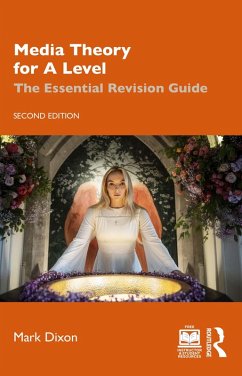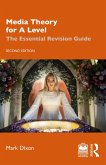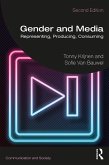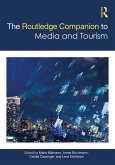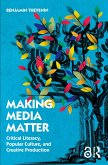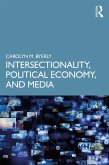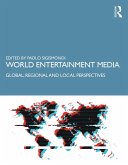From Roland Barthes to Clay Shirky, from structuralism to civilisationism, this revision book explains all the core academic concepts students need to master to succeed in their exams. Each chapter contains comprehensive explanations of the academic ideas and theories specified for GCE Media study as well as practical tasks, higher level 'challenge activities', glossaries, reference tables and revision summaries.
The second edition of this best-selling guide features:
- Updated and revised chapters and exemplars, reflecting the new A Level Media specification (AQA, Eduqas, OCR and WJEC).
- Overviews of core areas and potential approaches that could be taken in exam responses.
- Overviews of secondary theory that can be used in responses.
This book is key reading for teachers and students of A Level Media Studies and is also a useful resource for GCSE students.
Media Theory for A Level is accompanied by the www.essentialmediatheory.com website that contains a wide range of supporting resources including revision flashcards, worksheets and more exemplar applications of theory to current set texts.
Dieser Download kann aus rechtlichen Gründen nur mit Rechnungsadresse in A, B, BG, CY, CZ, D, DK, EW, E, FIN, F, GR, HR, H, IRL, I, LT, L, LR, M, NL, PL, P, R, S, SLO, SK ausgeliefert werden.
Professor Sonia Livingstone, Department of Media and Communications, London School of Economics and Political Science
"The book media teachers have been waiting for. As well as accessible explanations of the theories that never patronise or over-simplify, Mark Dixon provides a series of questions that encourage a critical approach to applying the set theories to a range of media products. The book makes links and draws comparisons between overlapping theorists, provides useful explanations of key theoretical terms and even interviews some of the key thinkers to get a more detailed and updated explanation of how their ideas apply to the current media landscape.
Dixon not only gives a concise summary of each of the set theories but also attempts to root them in the sociological, technological or cultural studies traditions from which they were inspired. This is essential reading for all media teachers and I'm already using it with the teacher trainees I work with."
Claire Pollard, Media Magazine

